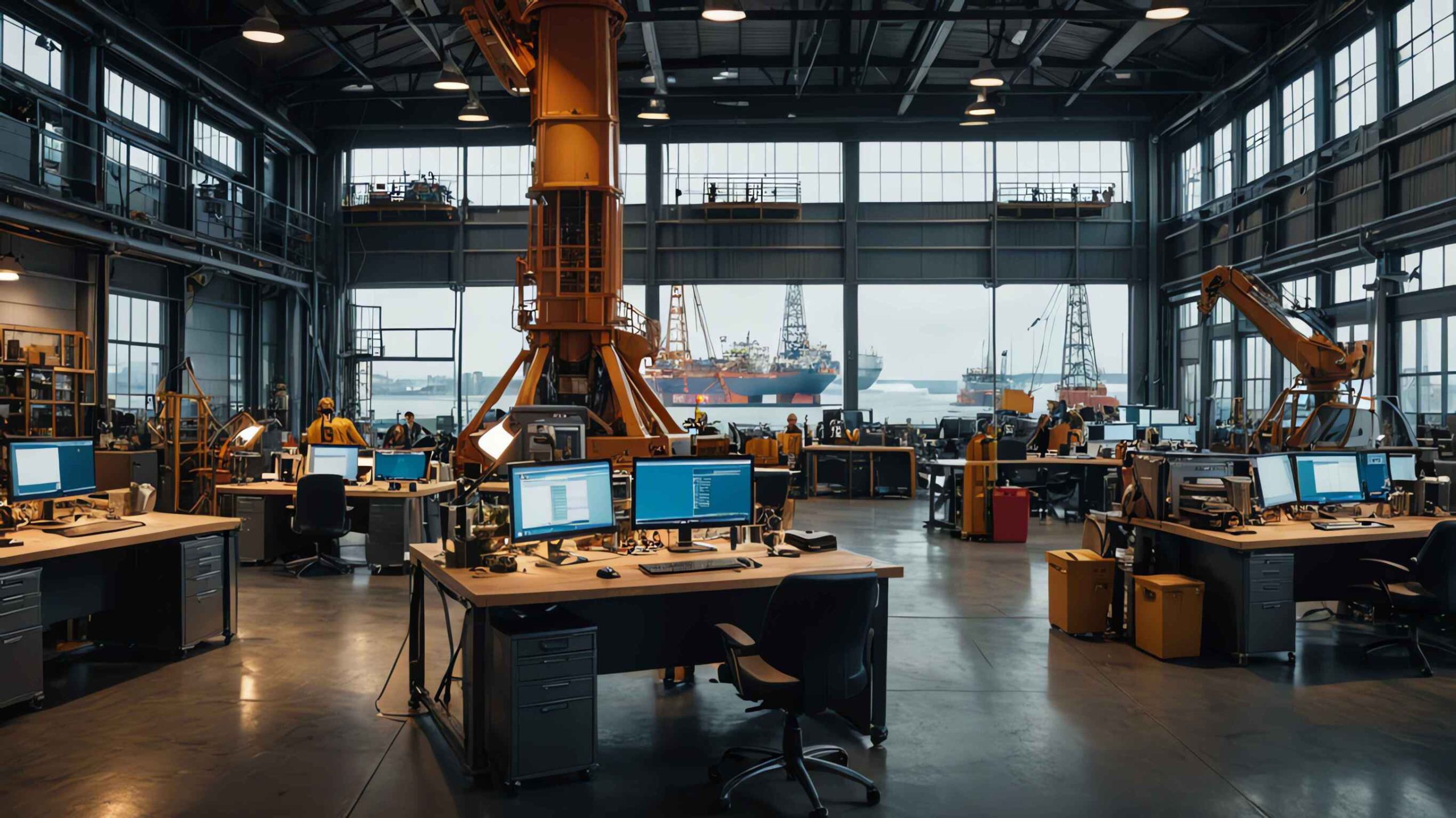
Naval Architecture and Marine Engineering
Naval Architects and Marine Engineers are professional engineers responsible for the design, construction, and repair of all floating structures, including military and civilian commercial ships and marine structures. The engineering education offered in this department covers the design, production, and maintenance-repair of marine structures such as:
- Commercial ships
- Passenger ships, ferries
- Warships – frigates, destroyers, aircraft carriers, amphibious ships
- Submarines and underwater vehicles
- Offshore oil drilling platforms, semi-submersibles, floating oil production and storage ships
- High-speed boats, hovercrafts, multihull vessels, hydrofoil boats
- Work platforms and vessels, fishing boats, tugboats, pilot boats, rescue boats
- Yachts, mega yachts, and other recreational vessels
- Floating devices for entertainment and tourism purposes
Since these structures are products of modern engineering and result from teamwork involving various engineering disciplines, it is necessary to enhance the management skills and capabilities of naval architects trained in this department.
The department’s curriculum is designed to enable naval architects to:
- Understand the fundamental concepts of different scientific disciplines
- Possess the highest level of skills in computer-aided design and calculations
- Work effectively as part of a multidisciplinary team
Being effective in written and oral communication, having the ability to make quick and efficient decisions, and being inclined toward teamwork are essential outcomes of the education program.
The Bachelor’s Program in Naval Architecture and Marine Engineering at our faculty is a modern engineering education program based on the following principles:
- Providing students with the necessary lifelong skills and professional competencies, along with essential social concepts required for a democratic society
- Encouraging graduates to pursue academic careers, graduate studies, and research
- Equipping students with a solid educational foundation for teamwork, written and oral communication, information integration, problem-solving, decision-making, and lifelong learning
- Enabling students to acquire skills to work efficiently and creatively in modern theoretical and conceptual development environments
- Teaching students presentation skills and the ability to use modern engineering and manufacturing tools
From the first year, all our courses are developed with a student-centered and project-based approach. We are committed to equipping our students with a high level of foreign language proficiency, advanced engineering knowledge, skills, and experience through projects, close industry collaboration, participation in sectoral projects, ERASMUS opportunities, and internships.
We aim to create a program where education does not end in the classroom, where conceptual and theoretical studies are reinforced with teamwork and projects, and where real-world problems in the maritime industry are addressed. We define this approach as “Using Shipyards as Classrooms,” and Piri Reis University’s status as a Sector University serves this objective.
In the Department of Naval Architecture and Marine Engineering, we have developed an education program based on the principle of continuous improvement, incorporating the latest design and production techniques. The program’s goal is to provide students with high-level engineering knowledge while also equipping them with problem-solving, leadership, and management skills in addition to teamwork and communication abilities.
We believe that this teaching model, which fosters lifelong learning, will enhance students’ creativity, provide opportunities for teamwork, instill enjoyment in their work, and give them a sense of achievement.
Our students engage in projects and learn through discovery from their first semesters. They design and produce prototypes using the opportunities provided, experience the entire process from design to production, eagerly anticipate the results of their projects, and compete.
In addition to project-based courses, especially in the last two semesters, we have created programs that allow students to participate in ongoing projects at companies and actively work during specific periods of the semester. This program is developed and shaped in collaboration with maritime industry production and design firms, as well as other sectoral entities, located close to our university in Tuzla. It aligns with the strategic plans of the industry and receives their support and supervision. This “Using Shipyards as Classrooms” educational model provides students with practical training in their fields, creates a highly motivating environment, and facilitates their transition into professional life. Additionally, it is evident that students recognized by the industry will have better job opportunities after graduation.
Based on their interests, our students specialize in areas where Turkey ranks among the global leaders, such as motorboats, sailing yachts, military and commercial ship production and design, as well as in small vessel design and production, which is included in the program curriculum.
As a result of our department’s efforts, the Society of Naval Architects and Marine Engineers (SNAME, the American Society of Naval Engineers) accepts our interested students as “student members.” This membership allows students to take pride in being part of a global professional community from the early stages of their education and provides them with discounted access to books, scientific journals, and other professional resources.
Graduates of the department will be able to work as Naval Architects and Marine Engineers not only in Turkey but also worldwide, in shipyards for all types of ship production, offshore structure production, design offices, classification societies, and related industrial sectors.
